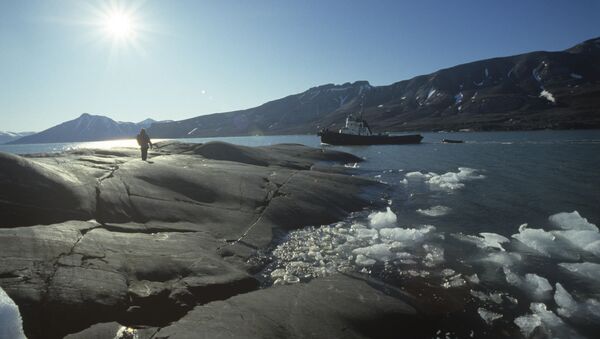The melting of arctic ice, which opens new opportunities for transportation, trade, fishing and mining, necessitates a new legal regime for this highly vulnerable environment, the WWF said on Monday.
The arctic region is believed to contain vast oil and gas reserves and other mineral riches, which are likely to become accessible in future decades due to climate change. The unprecedentedly rapid warming of the arctic could lead to completely ice-free summers within decades.
The World Wildlife Fund issued three reports with a common name The International Governance and Regulation of the Marine Arctic to coincide with Russian President Dmitry Medvedev's visit to Norway, which includes talks on arctic issues, and ahead of the upcoming Arctic Council meeting in Greenland.
"The melting of the arctic ice is opening a new ocean, bringing new possibilities for commercial activities in a part of the world that has previously been inaccessible," Lasse Gustavsson, incoming executive conservation director for WWF-International and currently CEO of WWF-Sweden, was quoted as saying of the WWF International website.
"We need a new comprehensive solution for the protection of the arctic marine environment. The ice has protected the Arctic Ocean for hundreds of years; we have collectively removed that protection though our contributions to climate change, and now we must work collectively to replace that protection," he went on.
He called on the governments of the United States, Canada, Denmark, Norway and Russia "to advance alternatives that would work equally well to safeguard the region."
Gustavsson said that although over one quarter of all fish consumed in Europe is caught in the arctic area, no effective rules have been established for fishing in previously inaccessible areas.
Another major problem is rich hydrocarbon deposits and other natural resources under the Arctic Ocean, which are becoming increasingly accessible due to new technology and climate change. It makes the extent of the continental shelf a matter of national interest as countries vie for sovereignty over the seabed.
Under international law, the five Arctic Circle countries each have a 322-kilometer (200-mile) exclusive economic zone in the Arctic Ocean. Russia is set to claim a larger territory on the grounds that its continental shelf extends beyond the 200-mile limit.
The move irritated a number of Western countries, particularly Canada, whose government accused Moscow of making an unsubstantiated claim to the area.
WWF warns that intensive mining and prospecting in the region may result in an ecological disaster similar to Exxon Valdez, when an oil spill in the absence of cleanup rules and infrastructure wreaks havoc on a highly susceptible environment.
Oil released during the 1989 oil spill from the Exxon Valdez tanker still lingers along Alaska's coast and its presence was confirmed in the region's flora and fauna some two decades after the shipwreck.
Russia, which has the longest arctic shelf territory, will be the hardest hit in case of a similar disaster, WWF says.
The organization urges arctic states to adopt a new framework convention "as a solution that could address the urgent gaps," said Victoria Elias, conservation program director of WWF Russia. The agreement should be compatible with current international agreements and the legislation of the five Arctic Circle states.
MOSCOW, April 26 (RIA Novosti)



